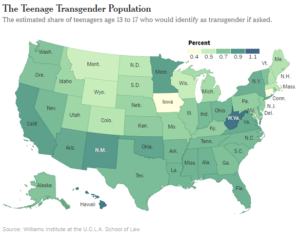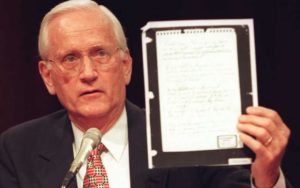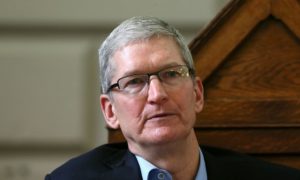WASHINGTON — Prompted by the Trump administration’s reversal of the federal government’s position on transgender rights, the Supreme Court announced on Monday that it would not decide whether a transgender boy in Virginia could use the boys’ bathroom at his high school.
The decision not to take his case, which came as the court is awaiting the appointment of a ninth member, means there will be no ruling on the highly charged issue of transgender rights this term. The issue will almost certainly return to the Supreme Court, probably in a year or two.
Until then, lawsuits in the lower courts will proceed, the political climate and public opinion may shift, and the court’s composition will almost certainly change.
Monday’s development was a setback for transgender rights advocates, who had hoped the Supreme Court, which established a constitutional right to same-sex marriage two years ago, would aid their cause.
Instead, in a one-sentence order on Monday, the Supreme Court vacated an appeals court decision in favor of the student, Gavin Grimm, and sent the case back for further consideration in light of the new guidance from the administration.
The Supreme Court had agreed in October to hear the case, and the justices were scheduled to hear arguments this month. The case would have been the court’s first encounter with transgender rights, and it would probably have been one of the biggest decisions of a fairly sleepy term.
“Thousands of transgender students across the country will have to wait even longer for a final decision from our nation’s highest court affirming their basic rights,” said Sarah Warbelow, the legal director of the Human Rights Campaign.
Kerri Kupec, a lawyer with Alliance Defending Freedom, a conservative Christian group, welcomed Monday’s development.

“The first duty of school districts is to protect the bodily privacy rights of all of the students who attend their schools and to respect the rights of parents who understandably don’t want their children exposed in intimate changing areas like locker rooms and showers,” she said.
There are other cases on transgender rights in lower courts, including a challenge to a North Carolina law that, in government buildings, requires transgender people to use bathrooms that correspond with the gender listed on their birth certificates. The law has drawn protests, boycotts and lawsuits.
The question in the Virginia case was whether Mr. Grimm, 17, could use the boys’ bathroom in his southeast Virginia high school. The Obama administration said yes, relying on its interpretation of a federal regulation under a 1972 law, Title IX, that bans discrimination “on the basis of sex” in schools that receive federal money.
The Department of Education said in 2015 that schools “generally must treat transgender students consistent with their gender identity.” Last year, the department went further, saying that schools could lose federal money if they discriminated against transgender students.
The Trump administration withdrew that guidance last month, saying it had been formulated without “due regard for the primary role of the states and local school districts in establishing educational policy.”
The letter announcing the new policy, signed by officials in the Education and Justice Departments, said schools must still take steps to protect all students from “discrimination, bullying or harassment.”
Individual school districts remain free to let transgender students use the bathrooms of their choice. The practical effect of the Trump administration’s change in position was limited, as a federal court had issued a nationwide injunction barring enforcement of the Obama administration’s guidance.
It will now be up to the United States Court of Appeals for the Fourth Circuit, in Richmond, Va., to answer whether Title IX protects the rights of Mr. Grimm and other transgender students.
Mr. Grimm attends Gloucester High School. For a time, school administrators allowed him to use the boys’ bathroom, but the local school board later adopted a policy that required students to use the bathrooms and locker rooms for their “corresponding biological genders.” The board added that “students with gender identity issues” would be allowed to use private bathrooms.
The American Civil Liberties Union, which represents Mr. Grimm, told the justices that requiring Mr. Grimm to use a private bathroom had been humiliating and had, quoting him, “turned him into ‘a public spectacle’ before the entire community, ‘like a walking freak show.’”
After Mr. Grimm challenged the school board’s bathroom policy in court in 2015, a divided Fourth Circuit panel ruled the policy unlawful. A trial judge then ordered school officials to let Mr. Grimm use the boys’ bathroom.
A 1975 regulation adopted under Title IX allowed schools to provide “separate toilet, locker rooms and shower facilities on the basis of sex.” The Fourth Circuit said that the rule was ambiguous and that the Education Department’s interpretation of it was entitled to “controlling weight.”
Both sides had hoped the Supreme Court would decide the case, Gloucester County School Board v. G.G., No. 16-273, even after the Trump administration withdrew its guidance on the meaning of the regulation.
In a letter to the justices last week, Joshua A. Block, a lawyer with the A.C.L.U., said the administration’s change in position did not render the case moot, as the basic question of what Title IX meant remained. “The underlying principle that discrimination against transgender individuals is a form of discrimination on the basis of sex has been widely accepted in the lower courts for years,” he wrote.
“Delaying resolution would provide no benefit to the court and would needlessly prolong harm to transgender students across the country awaiting this court’s decision,” Mr. Block wrote.
In a second letter, S. Kyle Duncan, a lawyer for the school board, agreed that the case should proceed, though he suggested a brief delay to allow the Trump administration to weigh in.
A ruling on the meaning of Title IX, Mr. Duncan wrote, “will save the parties — as well as public and private parties involved in similar disputes throughout the nation — enormous litigation costs as well as needless and divisive political controversy.”
The Supreme Court rejected those requests, apparently preferring to wait for a cleaner presentation of the issues in a different case.
In: nytimes






